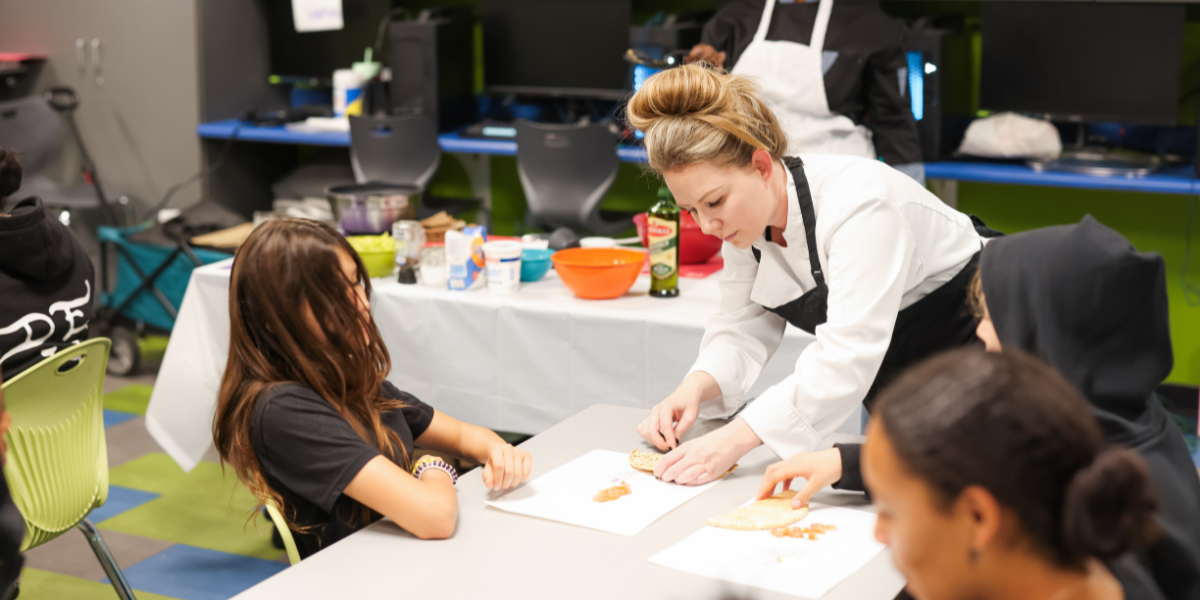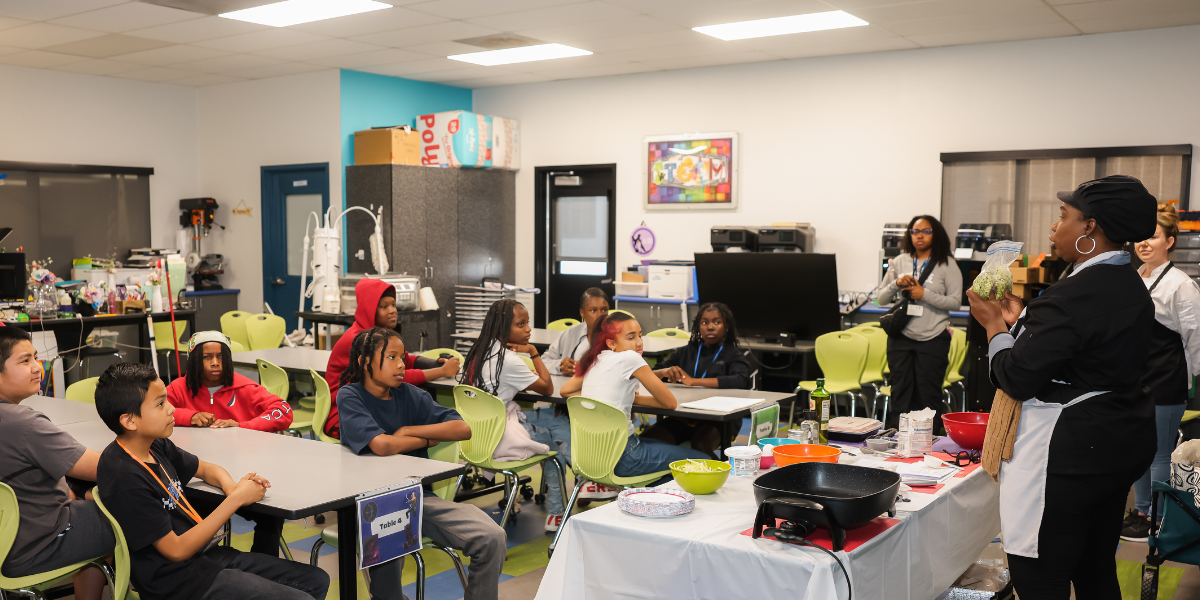We talk a lot about afterschool programs because we know they’re more than just a place to be.
We’ve seen what happens when kids have the space, support, and encouragement to keep growing after the bell rings.
Between 2 and 6 p.m., there’s a window of possibility.
- It’s where tutoring turns into confidence.
- A cooking class fosters teamwork.
- And mentorship becomes trust.
Quality afterschool programs don’t just fill a daily schedule; they shape lives.
They help students build skills, friendships, and the belief that they’re capable of more.
We’ve seen it. The research confirms it.
And we believe in making that kind of impact accessible to every student.
And here are four reasons why:
1. Academics get a boost
Some students struggle during the school day, but something shifts after 2 p.m.
There’s less pressure, more room to breathe, and a chance to grow without feeling like they’re behind. In our cooking workshops, we’ve seen kids light up. Not because they have to be there, but because they want to be there.
They get knowledge in a way that feels encouraging, not rushed.
They learn to measure and mix in a cooking class, and suddenly, fractions make sense.
Each small win builds focus, confidence, and pride in their progress. And it’s not just our experience; the research supports it.
One national study found that afterschool programs helped students at risk of academic failure improve in both reading and math, especially in the early grades.

- Confidence rises. Behavior improves.
There’s something powerful about learning a hands-on skill like cooking. You see it in the way a student stands a little taller after plating their dish.
You hear it in their voice when they say, “I made this.”
It’s not just an activity. It’s self-worth in action. When kids feel proud of what they create, they carry that feeling into everything else they do.
They show up more focused, more respectful, and more connected. Students who regularly participate in after-school programs are more likely to stay engaged and less likely to act out or receive suspensions.
It’s a simple truth: confidence changes behavior.
- Social-emotional growth happens naturally
Not every child gets time to just be a kid. It is important for children to experiment with new experiences. It’s equally important for children to make mistakes and try again. They enjoy sharing laughter with their friends and experiencing a sense of belonging.
Afterschool programs create that space.
It’s where students build real relationships with peers who cheer them on and adults who show up, day after day.
In that kind of environment, things like patience, teamwork, and emotional awareness are real.
For many kids, such an environment is the most consistent mentorship they have. And that consistency makes a difference.
It builds trust. It builds resilience. And it helps shape the kind of person they’re becoming.
4. Attendance improves
This one’s big. Chronic absenteeism is a serious challenge, especially in Title 1 schools. But when students feel like they belong, when there’s something to look forward to after class, they’re more likely to show up. Afterschool programs give students a reason to stay engaged. It might be a cooking activity, a trusted mentor, or just a place where they feel seen. The numbers tell the story too. In one study of 1.4 million students in low-income schools, 60% of those who had been chronically absent improved their attendance after joining an after-school program. We could list more benefits, but these four are the most obvious in our daily work.
At the core of it all is something simple and powerful:
afterschool gives kids a chance to succeed in ways school days sometimes can’t. It provides a space where they receive recognition, support, and opportunities for growth.
If you’re looking to bring something meaningful, consistent, and fun to your students after school, we’d love to connect.
Click here to book a meeting with our team.
Previous Blog posts:
Chef Teacher Story: Meet Chef Scotty, In Review: Big Wins, Big Growth, The Six Key Benefits of Summer Programs for Kids and Communities, Chef Teacher Story: Chef Myck
